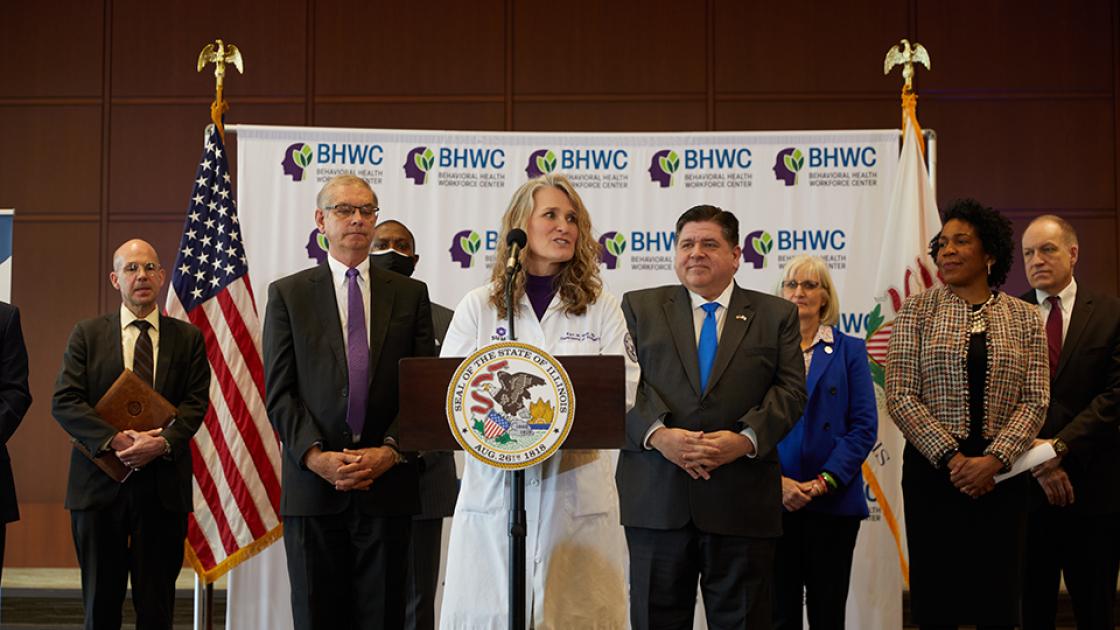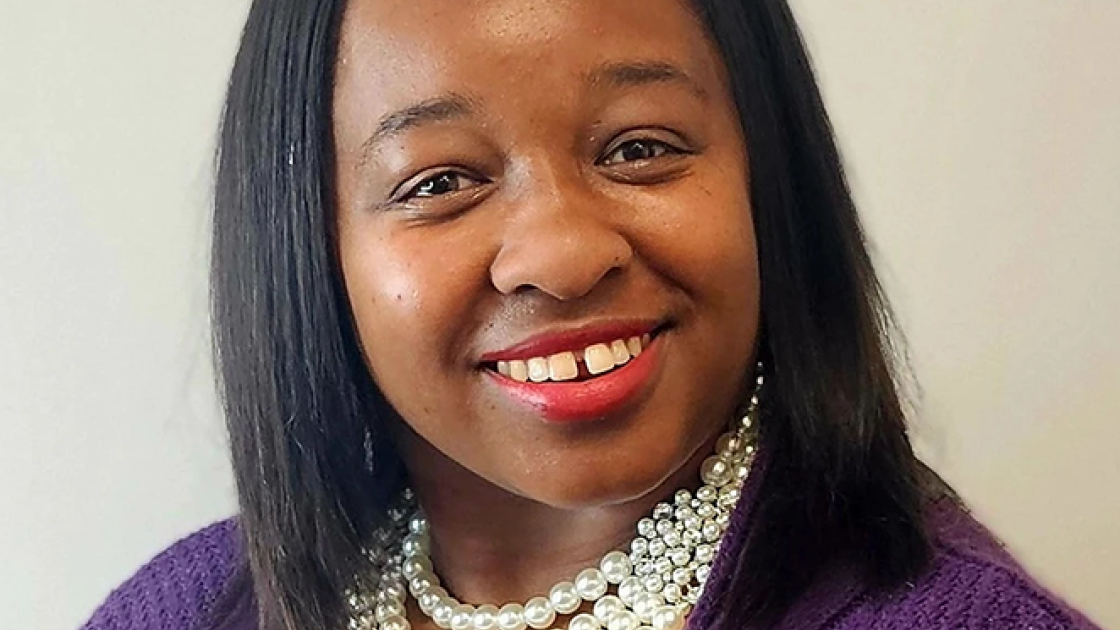
Growing Illinois’ behavioral health workforce
SIU leads efforts to cultivate connections, nurture opportunities for behavioral health access
In 2017, Dr. Kari Wolf launched her campaign to begin growing Illinois’ behavioral health workforce. She met with state legislators to discuss a bill that would convene a task force to evaluate the impact of the depleted workforce. Because of her groundwork and those of other partners, House Resolution 711 was passed in 2018 and declared that “Illinois is suffering from a behavioral health care workforce emergency.” Soon after, a team of mental and behavioral health professionals across Illinois began to collect and examine data, discuss strategies and provide recommendations for addressing the workforce shortage.

In 2019, Governor J.B. Pritzker signed Senate Bill 1165 — the Illinois Behavioral Health Workforce Act. In March 2023, the Behavioral Health Workforce Center (BHWC) was officially launched with funding from the Illinois Department of Human Services’ Division of Mental Health and administered by the Illinois Board of Higher Education. The primary goals of the BHWC are to create and build innovative initiatives to recruit, educate and retain Illinois’ behavioral health professionals. SIU Medicine is the primary hub, and University of Illinois Chicago is the secondary hub.
“We have been facing a workforce crisis in mental health for years due to a shortage of behavioral health specialists. Local staffing levels were already critical in rural and small urban communities, and the pandemic made matters worse globally, with a 25 percent increase in people seeking mental health care,” Dr. Wolf stated. “Through the Center, we aim to assess current educational pathways and create additional training opportunities to develop a diverse behavioral health workforce that is distributed across the entire state.”
Though the pandemic slowed some of the momentum Dr. Wolf, state agencies and other partners had helped build, the established hub-and-spoke model of the Behavioral Health Workforce Center celebrated its first anniversary in March and is steadily growing. Advisory groups, including members from state agencies, higher education institutions, consumers, parents and behavioral health providers, regularly convene to move their strategic plan forward. They’re implementing pathways and pipelines for continuous education, policy change recommendations and training programs to help develop and build Illinois’ workforce.
The BHWC also developed an interactive workforce dashboard to identify regions with the greatest shortage of specific behavioral health providers, and recently launched a free job board to connect behavioral and mental health employers and job seekers in Illinois.
Nearly one year after the BHWC was launched, Dr. Wolf and other BHWC leaders like Dr. Sonya Leathers, director of the University of Illinois Chicago hub, are being called on to educate policy makers on the problems and solutions framing the workforce crisis. As CEO, Dr. Wolf recently spoke at a joint committee hearing hosted by State Representative Lindsey LaPointe, chair of the House Mental Health and Addiction Committee, and the Senate Behavioral and Mental Health Committee, to discuss the current behavioral health workforce shortage and provide recommendations to address future shortages. Local behavioral health providers, state agency leaders and state associations working to improve the behavioral health workforce also provided testimony at the hearings.
This work is just the beginning of what Dr. Wolf and her partners want to build with the BHWC. Its most significant role, even before its launch, has been cultivating connections and nurturing opportunities for collaboration with state agencies, partners and stakeholders who want to see more help and healing for Illinoisans who struggle with mental health and substance abuse challenges. These relationships helped plant the seeds of positive change, which are now sprouting and thriving.
To stay informed on the progress of the Illinois Behavioral Health Workforce Center, sign up for its newsletter here.



